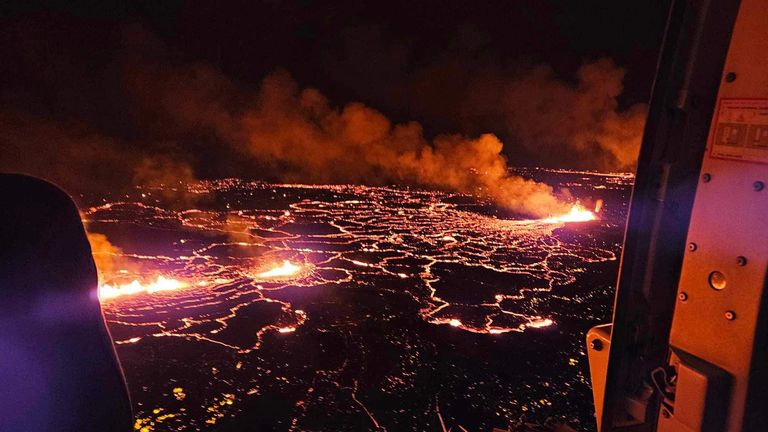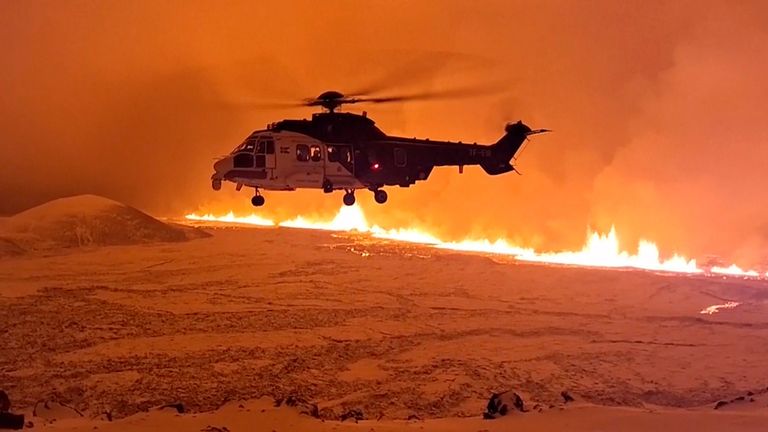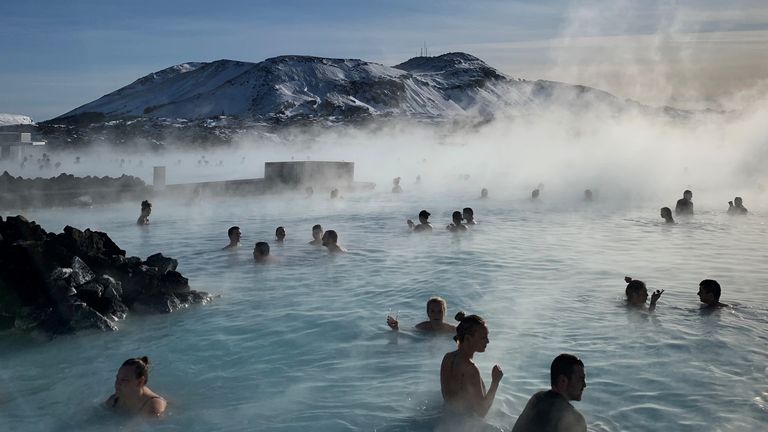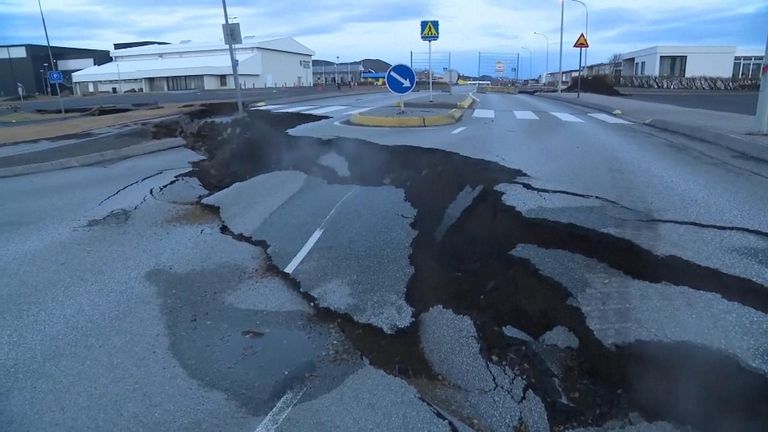A volcano has erupted spectacularly in southwest Iceland – a month after large cracks opened up nearby.
Lava is flowing away from the only town in the area and there are signs the intensity is diminishing, giving hope the impact could be minimised. But it’s not over yet.
Is it safe to go to Iceland?
Travelling to the country is still considered safe.
The eruption is confined to the Reykjanes peninsula in the southwest, leaving the vast majority of the country unaffected.
Incredible footage shows spewing lava – live updates
As long as travellers avoid the immediate vicinity of the eruption, such as the town of Grindavik, the risk is extremely low.
“The eruption does not present a threat to life,” said the Icelandic government.
The UK Foreign Office says on the gov.uk website that people should stay away from the affected area, and visitors “are advised to check for latest updates”.
Please use Chrome browser for a more accessible video player
0:50
Lava spews from volcano in Iceland
However, there could be some pollution blowing over the capital Reykjavik, about 18miles away, in the coming hours – so it’s worth checking the latest situation if you’re going to the city in the next few days.
“According to the weather forecast, gas pollution could be noticed in the capital area late tonight or in the morning,” said the country’s meteorological office on Tuesday.
“New work is being done on a hazard assessment card and it will be issued later today.”
Are flights disrupted?
Previous eruptions at a different volcano in Iceland, Eyjafjallajokull, caused huge disruption to European air travel in 2010.
Ash pollution drifted across the continent and thousands of flights were grounded for days.
But experts say the current eruption is of a different type, and there are no reports of problems so far.
“This type of eruption doesn’t generally produce much ash, which is what tends to ground planes,” said Matthew Watson, professor of volcanoes and climate at the University of Bristol.
The Icelandic government said on Tuesday there were no flights disrupted to or from the island and “international flight corridors remain open”.

Pic: Civil Protection in Iceland

Pic: Icelandic coast guard/AP
National airline Icelandair – which flies to the UK – said its operations weren’t affected and that the main international airport, Keflavik, was also working as normal.
“We’re monitoring the situation closely and will inform our passengers of any new developments,” it said.
It pointed out there are currently 40 volcanoes erupting around the world without significantly affecting air traffic.
Isavia, the firm that runs the island’s airports, struck a similar tone and said Keflavik and Reykjavik airports were both unaffected.
However, it recommended passengers check their flight schedule on the airports’ website before flying, just in case.
How many people have been evacuated?
The only town near the eruption is the fishing town of Grindavik and its roughly 4,000 residents were evacuated last month when large cracks opened up.
One of Iceland’s most popular attractions, the Blue Lagoon thermal spa, is also nearby and has been closed for weeks.

The famous Blue Lagoon is near the eruption site and has been closed for a while
Please use Chrome browser for a more accessible video player

0:57
Volcanic rumbling causes cracks through town
It was predicted that an eruption was likely at any time, but it’s taken a month for it to happen – with lava and smoke finally spewing out, up to 100m in the air, on Monday night.
Officials say it’s unclear how long it will all go on for.
“It could potentially go on for several months, it could also just stop later today or tomorrow,” said Halldor Geirson, associate professor at the institute of earth sciences at the University of Iceland.
Read more:
Eruption may not be short-lived – we have to let nature take its course
What is happening under the surface?







